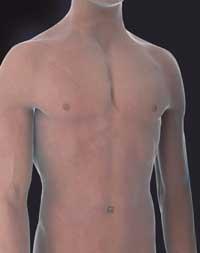The question of the remaining pieces
2008/06/15 Lakar Iraizoz, Oihane - Elhuyar Zientzia

The truth is that there is a great controversy among those who investigate this, some believe that somehow it contributes to the immune system and that it is the refuge of intestinal bacteria, while others do not believe that it has any important role.
Of course, not knowing what the function of a part of the body is does not mean that it has no function. It may be due to our ignorance. But there are those who think that there are parts of the body that have actually lost their function in the past or have never had a certain function.
Throughout history the perception of obstitial limbs has varied greatly, such as those that do not have a known or clear function. In 1893, for example, the German anatomist Robert Wiedersheim named 86 human catheters. Since then the list has been expanded and reduced on numerous occasions. Today the debate is too big to think about making such a list.

Of course, since 1893 we have learned many new things about human anatomy, and many bodies that were formerly considered alien now have a known function: for example, transversally venous valves. These valves prevent the recoil of blood from the limbs to the heart. However, Wiedersheim did not know that they had that function and that is why he included them on his list.
Why have they not been lost?
Why have not parts of the body been lost that we have nothing in evolution? Would it be normal to lose? Well, no. Evolution advances through natural selection, which is the one that best adapts to local conditions through natural selection, including its body parts.
But the limbs that do not influence their better or worse adaptation to the environment are outside the influence of natural selection, so they evolve a la carte and do not have to disappear, since at least they do not cause damage.
Scientists often try to figure out which parts of the body are dysfunctional or what they had in an age they have lost over time. For example, no one doubts that men's nipples have always been without functions.

The rear of hens is considered another. In warm-blooded animals with hair, feathers or thorns, they are placed erect by shrinking the follicle of each hair, feather or spine, protecting the skin against the cold environmental wind, forming a layer of hot air between the hairs or feathers, or demonstrating that they are greater than they are before predators. However, the amount of human hair is too small, both for one and another function, so laying the ass of the hen has lost its functionality in other animals.
However, some people say that it has taken a less important role: now, above all, we relate it to feelings, we usually put when we get excited and the ass of the hen. Therefore, it has become a way of communicating with others. It's hard to start spinning around these kinds of topics.
Published in 7K.

Gai honi buruzko eduki gehiago
Elhuyarrek garatutako teknologia





